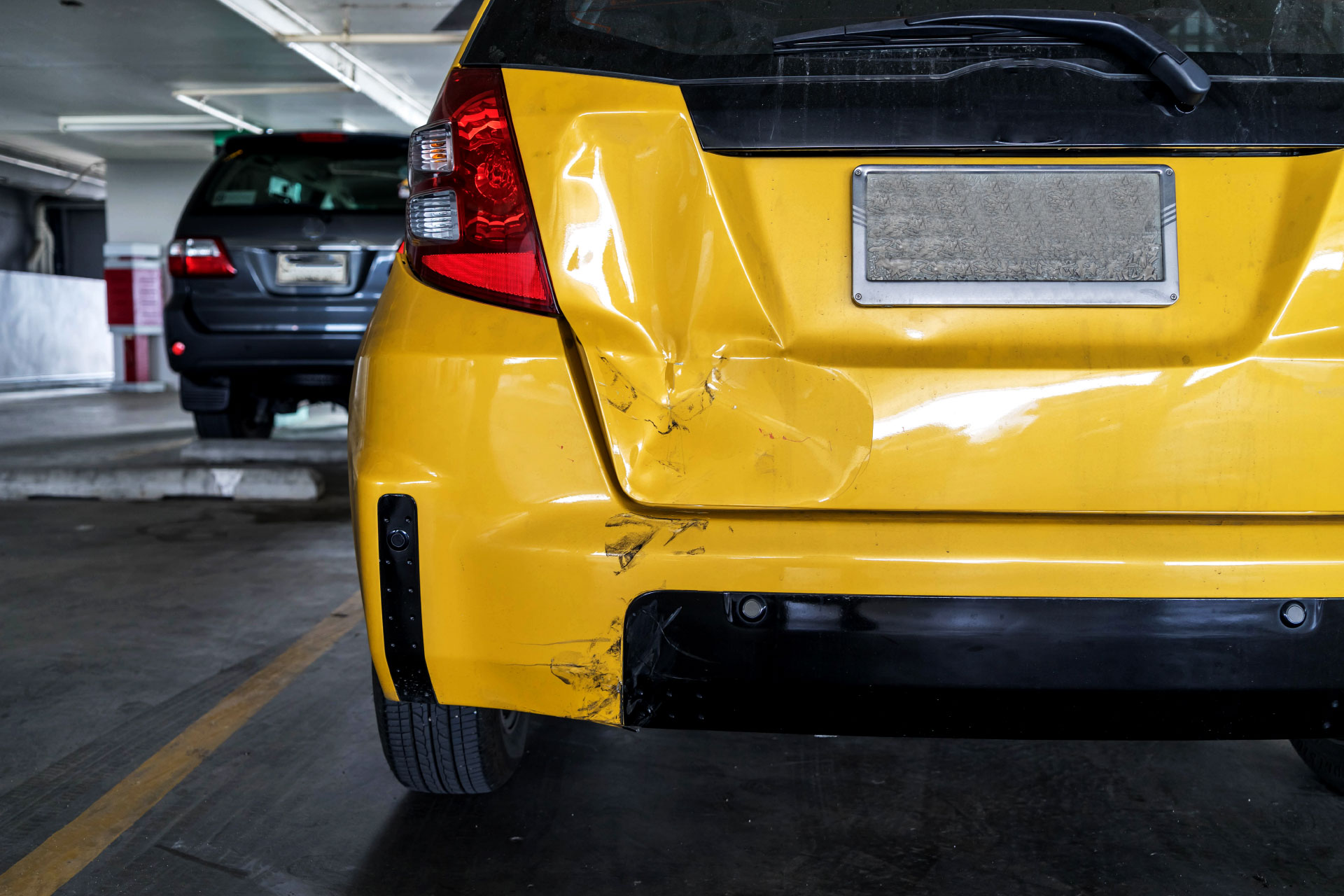How Much Does a Personal Injury Lawyer Cost in GA and SC?
Most personal injury lawyers, like ours at M. Austin Jackson, work on a contingency fee basis, which means you pay no upfront costs and your lawyer doesn’t receive payment unless you win.
Depending on the specifics of your case, the percentage your lawyer receives is typically between 33% and 50% of the total award amount. While that number may seem high at first, keep in mind that the contingency fee system keeps you and your attorney on the same team from day one—it’s your lawyer’s job to maximize your recovery so you have what you need to move forward.
Understanding how personal injury attorneys structure their fees empowers you to make informed legal choices and find quality legal representation, regardless of your finances. Let’s work through the basics together.
Understanding Contingency Fees
Most personal injury lawyers in Georgia and South Carolina work on a contingency fee basis. Under this arrangement, the quality of your legal representation isn’t tied to your financial resources, and everyone has access to strong legal guidance.
Personal injury attorneys typically charge a contingency fee that’s between 33% and 50% of the total settlement amount. More complex cases with heavier workloads and greater risks may have higher contingency fees. The duration–meaning how long the litigation lasts–can also play a major factor in the percentage a lawyer receives of the overall award or result.
Many attorneys use a sliding scale based on how far a case progresses:
- 33%-40% if settled before filing a lawsuit
- 35%-45% if settled after filing a lawsuit
- 40%-50% if the following occurs:
- A trial begins
- A verdict is rendered in a trial
- A party appeals a verdict
The more work and risk involved, the higher the attorney’s fee. For example, we usually charge a higher percentage to work on premises liability cases that we do on automobile crash cases. The reason is, premises cases usually have more complicated situations, which can lead to liability disputes and therefore, a longer “fight” with “the other side.”
Understanding Legal Fees and Case Expenses
Attorney fees and case expenses are the two primary costs in personal injury cases. It’s important to know how both work so there are no surprises.
Attorney fees cover a law firm’s time, expertise, and general services provided. Lawyers typically get paid a percentage of the settlement (or, verdict), which varies depending on the factors mentioned above.
Court expenses are separate from attorney fees. They may include:
- Court filing fees
- Expert witness fees
- Medical record retrieval costs
- Deposition expenses
- Investigation costs
- Administrative expenses (e.g. postage, legal research, travel)
Some law firms require clients to pay expenses as they arise during the case. Others cover costs initially and deduct them from the final settlement or award later on.
You should always ask how your attorney handles case expenses before signing a contingency fee agreement. The fee structure should be clearly outlined in the agreement and specify whether the firm will deduct expenses before or after calculating the attorney’s percentage fee.
Here’s an example: Your attorney recovers a $100,000.00 settlement with $5000.00 in expenses and an attorney’s fees at 35% of total recovery:
$100,000.00 – $35,000.00 (attorney’s fees) – $5,000.00 (expenses) = $60,000.00 net to the client
As a rule of thumb, if you have questions, you should run them by your attorney’s team. They’ll be able to explain the details with total transparency so you’re never in the dark about your case.
Factors That Can Affect Legal Fees
Factors that can influence your fee arrangements include:
- Case complexity: More complicated cases require additional time, resources, and expertise. Contingency fee percentages are often higher if the case involves multiple parties, severe injuries, or disputed liability.
- Expected timeline: Longer cases also result in higher costs. This is why many attorneys use sliding-scale agreements. As a case requires extended negotiations, more court appearances, voluminous discovery, in-depth investigations, or a trial (or an appeal of a trial), the fee percentage usually increases.
- Likelihood of going to trial: Cases rarely go to trial. Some law firms charge higher contingency fee percentages to cover trial preparation, additional expenses, and increased risks. We do not–our fee typically increases when a lawsuit is filed, but we do not charge a “trial fee” because we want our clients to know we are ready to take a case to trial if necessary.
- Required expert testimony: Expert witnesses generally charge by the hour, and sometimes attorneys call multiple experts to provide testimony and strengthen a case. In “big” cases, expert costs can be very expensive.
- Amount of investigation needed: Gathering evidence, reconstructing an accident scene, and securing medical records may warrant higher fees.
Other Types of Legal Fee Structures
Personal injury cases have different fee structures than other legal cases. The contingency fee arrangement differs from the hourly or flat-fee rate structure you see other lawyers utilizing–such as divorce, criminal defense, bankruptcy, or real estate lawyers.
The fee structures in personal injury law are different by design. Contingency fees remove financial barriers. A prospective client can hire an experienced personal injury attorney, no matter his or her income level; and, if the case is unsuccessful, he or she owes no legal fees. Plus, injury victims can focus on healing without the stress of legal costs.
What Happens to Legal Fees if You Lose
Let’s say your personal injury claim is unsuccessful. What happens next? With a contingency fee arrangement, also known as the “no-win-no-fee” principle, you won’t owe any legal fees. Attorneys only receive a payment if they win a case and financial risk shifts from the client to the attorney.
But keep in mind that you may still be responsible for other legal costs. It’s important to review your contingency fee agreement so you understand how the firm handles case expenses. While personal injury attorney fees are contingent on winning, case expenses are often treated separately.
How M. Austin Jackson Makes Legal Help Affordable
At M. Austin Jackson Attorney at Law, our lawyers are committed to making quality legal representation accessible. We believe everyone deserves a compassionate attorney who looks out for their best interests.
Since we operate on a contingency fee basis, our clients owe us nothing unless we secure them a financial recovery. This means no upfront costs—just local legal representation with a neighborly approach. M. Austin Jackson and his team offer free consultations, so you can share your story and get expert advice before you decide to hire our firm.
Frequently Asked Questions
When do I have to pay my lawyer?
In most personal injury cases, you don’t have to pay your lawyer upfront. This is because personal injury attorneys usually work on a contingency basis and don’t get paid unless they win your case. If your attorney successfully settles your case, they’ll deduct a predetermined percentage of the total settlement. This fee is typically between 33% and 50%. In most cases, lawyers deduct their fees before disbursing the remaining funds, but you’ll want to review your fee agreement to find out how they handle expenses. After your case concludes, you may still be responsible for case-related expenses, regardless of the outcome of your case.
What percentage do most injury lawyers charge?
Most personal injury attorneys charge a contingency fee that ranges from 33% to 50% of the final settlement or award. The exact percentage varies depending on case complexity, the amount of work required, the stage of case resolution, and the settlement amount.
Are there any upfront costs?
There are generally no major upfront costs. Sometimes, case-related expenses like court filing fees, expert witness fees, and medical record retrieval costs will pop up. But many law firms cover these expenses and then deduct them from the final settlement.
What happens to expenses if we lose?
With a contingency fee arrangement (also known as “no-win, no-fee”), you won’t pay any legal fees unless you receive a financial award. Your lawyer takes on the financial risk. But you may still be responsible for other costs like court fees and expert witness fees. Review your fee agreement so you understand the expenses your attorney will expect you to cover.









